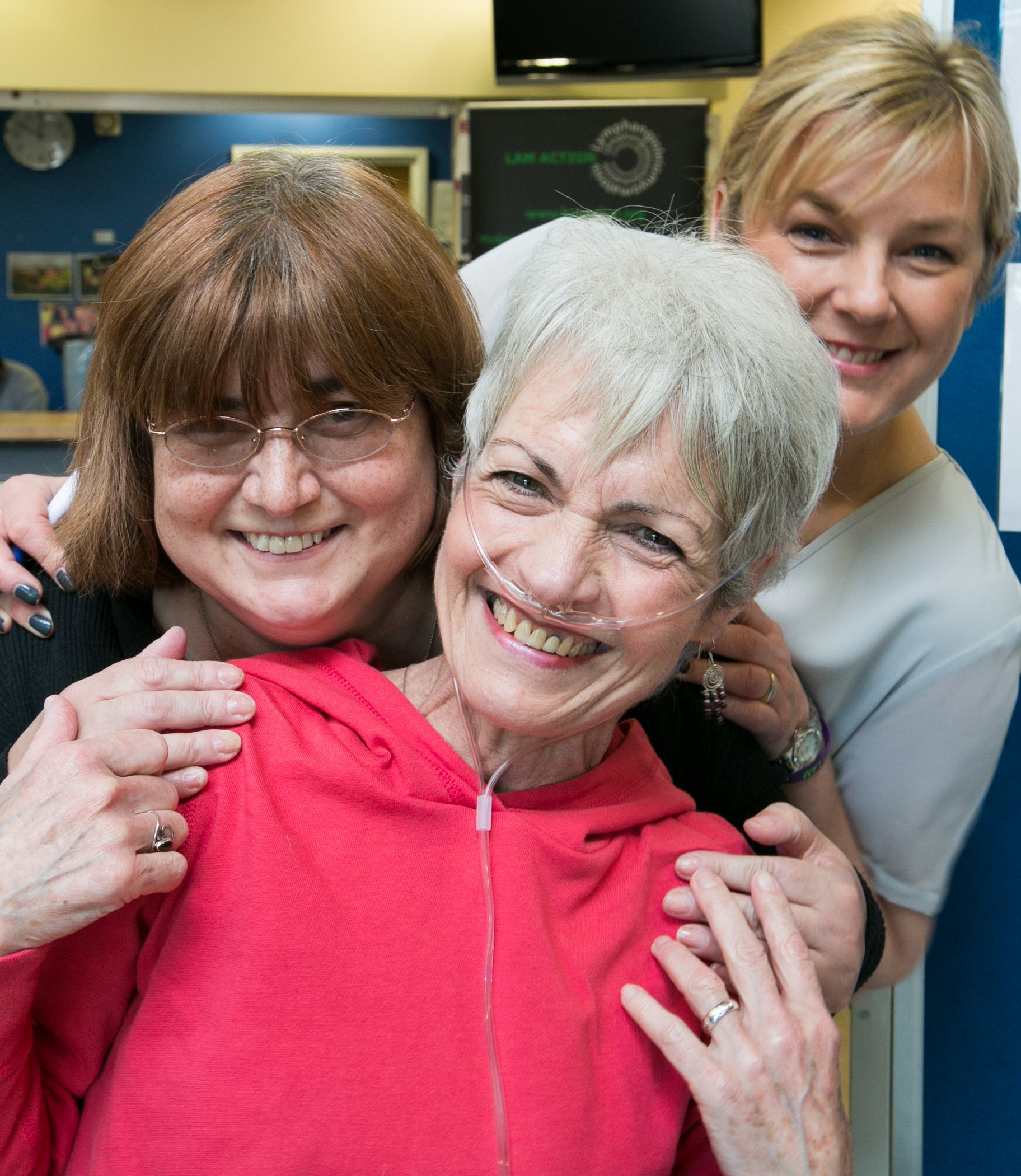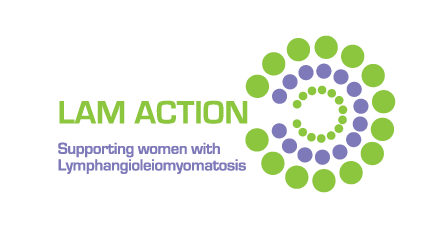Get Support
Those with LAM are unlikely to know anyone who has heard of LAM or who has the condition and this may lead to feelings of isolation. We hope LAM Action can help. One of our primary aims is to provide support and information to those with LAM and their families.

Support for Patients & Families
In addition to the information on our website, you might find the following helpful:
One-to-one conversations between those affected by LAM can be very helpful in addressing concerns and sharing experiences, whether you are newly diagnosed, have lived with LAM for a long time or are trying to help someone with the disease. We have a network of people available to talk and provide support to others. Please contact us if you would like us to put you in contact with someone.
Support groups of women with LAM meet regularly on a virtual and, where possible, in-person basis. We have regional and age-based groups. Please contact us for more information or if you would like to join one of our upcoming group meetings.
LAM Talk UK is our private Facebook group primarily for women in the UK with LAM. Women share their experiences and questions with others in a supportive environment. To join LAM Talk UK, please search for it on Facebook and then complete the online registration form.
LAMline is our private email support group. Much like LAM Talk UK, it offers friendly and supportive discussions and support, but this time via email. To subscribe to LAMline, please click here and then complete the online registration form.
LAM Action’s co-ordinator, Jill Pateman, is able to talk to you about LAM and LAM Action and point you in the right direction for more information. She is available at jill.pateman@office.lamaction.org or on 07710 527636. Please note Jill only works on a Wednesday. For urgent enquiries at other times, you may want to email contact@office.lamaction.org and a volunteer will try to respond to you when Jill is not available.
Our annual meeting also is a great opportunity to learn more about LAM from medical experts, hear about others’ experiences and ask questions. Our meeting usually is held in June. Conditions permitting, we encourage people to attend the meeting in person, as doing so allows those affected by LAM to meet and talk with one another.
LAMPost is our newsletter, which is published three times a year and contains stories about women with LAM and other information about the disease and LAM Action. On the bottom of this page you can sign up for our newsletters.
Living with LAM
LAM affects each person differently, but there are some general health tips which we highlight below.
AVOID OESTROGEN
Women with LAM should avoid treatments which contain the female hormone oestrogen. This includes the combined oral contraceptive pill, hormone replacement therapy and herbal remedies, which may contain plant oestrogens. If you are considering pregnancy, discuss pregnancy with your physician before becoming pregnant.
DO NOT SMOKE
CHEST INFECTIONS
People with LAM, like those with other lung diseases, are more prone to respiratory infections. To reduce the chance of getting more severe respiratory infections:
- Get the recommended vaccinations – against pneumococcus (the bacteria associated with pneumonia) and have the ‘flu jab’ each year. Both are available through your GP. With new infections such as Covid ensure you are up to date with the latest advice (usually available from https://www.gov.uk/coronavirus, the National Centre for LAM or this website).
- Do not let chest infections drag on – Chest infections in people with LAM are more likely to need treatment with antibiotics and should be treated as soon as symptoms start. If you have a worsening cough and bring up more phlegm you should see your GP as soon as possible. If you have a lot of respiratory infections you should discuss this with your LAM specialist.
KEEP ACTIVE
It is important to keep active and maintain a good level of activity within the limits of your lung function. An appropriate level of exercise helps you to maintain a healthy weight, preserve leg muscle strength and can help you walk further. Exercising with a lung disease should be safe providing you build up gradually and stay within your limits. It is sensible to discuss any formal exercise plan with your hospital doctor, nurse specialist or GP before you start.
CONSIDER PULMONARY REHABILITATION
This is an exercise and education programme run by specialists, in which the amount of exercise is adjusted to your capability. It is generally helpful for people with lung conditions such as LAM, and may be available through your GP or hospital doctor.
TAKE CARE OF YOUR EMOTIONAL WELLBEING
As with other chronic illnesses, people with LAM may suffer from bouts of anxiety, depression and panic attacks. For people with respiratory problems, such as LAM, these can exacerbate feelings of breathlessness. There are a number of coping strategies, from learning good breathing techniques to getting professional counselling, so it’s important to seek help if you require it. LAM Action has produced two videos focused on how LAM may affect your mental health, both for newly diagnosed people and for those living with LAM longer term.
BONE HEALTH
Women with LAM are more likely to have a low bone mineral density, and hence will be at increased risk of osteoporosis. This is more likely to be the case in older and post-menopausal women and in those with more severe lung disease. To prevent osteoporosis, it is important to maintain adequate vitamin D levels and keep active, particularly with weight-bearing exercise. Bisphosphonate drugs appear to reduce the rate of decline in bone density, and are being used for some women. Bone mineral density scans can check bone health and this is something to discuss with your LAM specialist.
Common Questions
In addition to questions about LAM and the impact it has on someone’s health, people with LAM often question how LAM might affect their ability to travel, work or conceive children. We have produced the following publications that might be helpful in addressing some of these questions.
LAM AND AIR TRAVEL
As those with LAM often have concerns about flying, we have published a flyer about air travel, which we hope you will find helpful. To download a copy, please click here.
GUIDE TO PIP
The Personal Independence Payment (PIP) is a state benefit that might entitle people to financial help with daily living and mobility costs. People with LAM might need the benefit due to the effects of their LAM. We have published a flyer that describes PIP and the application process in more detail. To download a copy of the flyer, please click here.
LAM AND PREGNANCY
When deciding whether to become pregnant or not, women with LAM often ask about the possible effects of pregnancy on their LAM, and also on the effects of having LAM on their pregnancy and their baby. We have published a flyer that addresses LAM and pregnancy, which we hope you will find helpful. To download a copy of the flyer, please click here.
